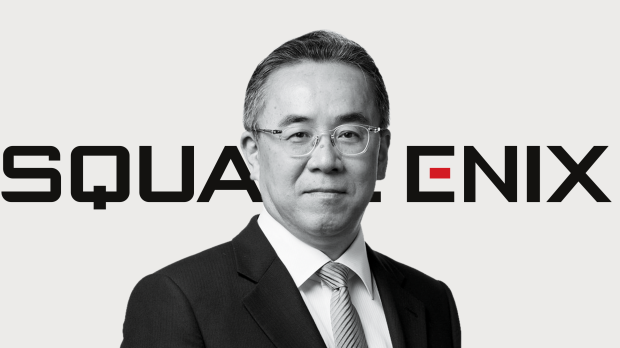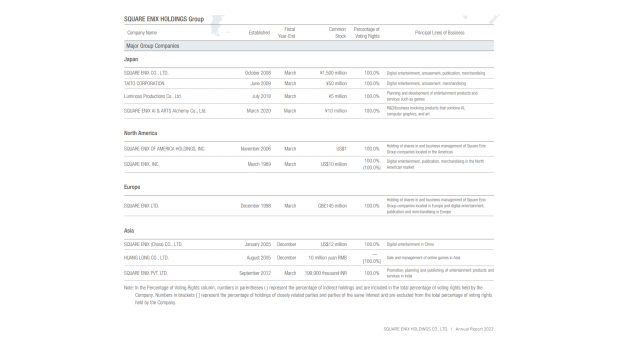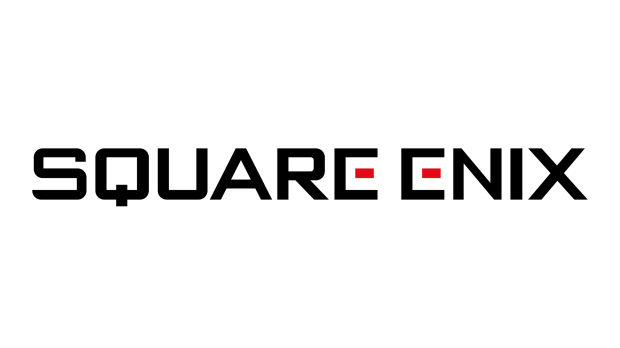Square Enix is eager to reduce risk wherever possible and is open to selling parts of its game development studios in order to share the costs and overall volatility in games

The games industry is a tough market. Making games is very expensive and there's no guaranteed payoff. No one knows which games will sink or swim.Even games set in mega-billion properties like Marvel can bomb on the market; just ask Square Enix, who lost an estimated $200 million on its to Marvel games, Avengers and Guardians of the Galaxy (this loss was so big that it led to the outright sale of the studios that made the games, Crystal Dynamics and Eidos Montreal).
Square Enix doesn't want any more unnecessary risk and the company is considering a more "diversified capital structure" of its game studios. Essentially Square Enix wants to take the Tencent approach; instead of taking full ownership of a game or studio, it could sell parts of its studios off to a third-party company such as the aforementioned Tencent, Sony, or even Epic Games. In return, it's assumed that costs like game development funding and marketing would be more split between the two companies.
Here's what Square Enix CEO Yosuke Matsuda said in a recent 2022 annual report:
By "a more diversified capital structure of our studios," I refer to not fixating on full ownership and instead making various patterns of the studios' capital structure that enables sharing development risk with partners. Such a strategy would allow us to grow our studio portfolio as a whole while exposing ourselves to less risk.
"Specifically, we would diversify the capital structure of our studios by not only owning some studios outright, but also by welcoming third parties to take stakes in some of our studios or by our taking stakes in studios outside the Group.
"In this way, we would create a studio portfolio that spans a continuum from studios that we own outright to those that are equity-method affiliates or less."

At the time of writing, Square Enix has multiple game development studios across the world including Square Enix Co Ltd (which includes Creative Business Units responsible for Final Fantasy, Dragon Quest, and others), Taito Corp, Luminous Productions, Square Enix Inc, and Square Enix Co Ltd in China.
Read Also: Square Enix's top 3 game franchises have sold nearly 300 million copies combined
The Japanese publisher also says that it could take minority stakes in other studios or companies in an equity-method approach, which would give Square Enix greater influence on said company. There's also the possibility of a joint venture.
The other option is to license out its IPs to third-party studios and receive royalties, similar to what Konami is doing with its new Silent Hill projects.
Matsuda also says that full development costs of games has created side effects that "we cannot ignore," which is a possible mention to the Avengers and Guardians of the Galaxy losses.
Square Enix also spent a record $792 million on its game production account, which includes game development and other funding costs.
"Our studio portfolio strategy has basically been for the Group to own its studios outright. Our 2005 acquisition of TAITO and 2009 acquisition of Eidos were in keeping with this view. Full ownership meant that since we bore all the development costs, we would stand to receive the entirety of the financial returns.
"At the same time, however, it also meant that we were exposed to the entirety of the downside risk. In the days before game development efforts reached their present massive scale, this strategy proved very effective because our Group was amply capable of absorbing any volatility on its own, as well as of generating returns that outstripped any risk.
"However, as the investment required for development efforts has grown, this strategy has begun to produce side effects of a scale that we cannot ignore. It is now more important than ever that we manage financial volatility and the impact that it has on our accounting because, while development investments fuel our Group's future growth, we must also recognize those investments in the form of our content production account.
This isn't the first time that Square Enix mentioned this business strategy. Matsuda also outlined these new plans with investors in a Q&A from September, but those plans are highlighted even further here in this report.



